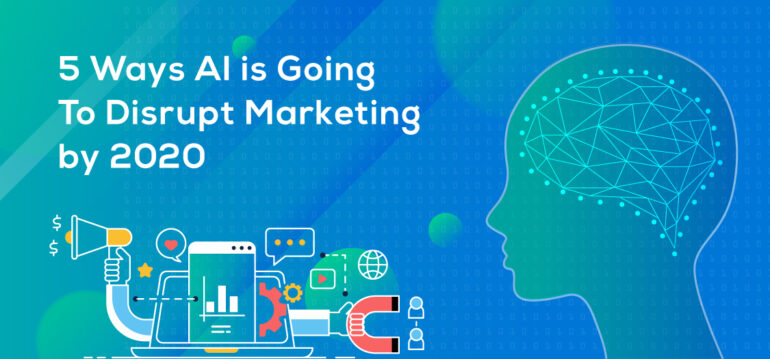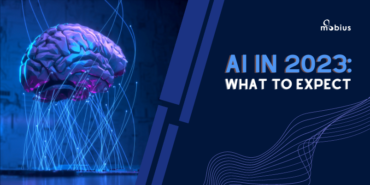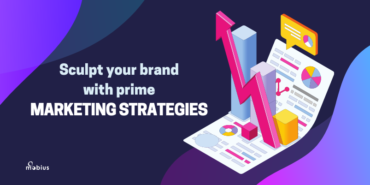[This article was written as part of the SEMrush Big Blogging Contest]
Last year, the celebrated tech journalist, Walt Mossberg censured online advertisements under the assertion that it ‘ruins the online experience.’
It looks like Mossberg is not the only dismissive about the interference of AI into our lives and our businesses. The fear of an impending robotic apocalypse is always on the rise. Issac Asimov predicted this in his books, almost seven decades ago.
Artificial Intelligence. A mystery box of possibilities and perils.
Somewhat scary, but also very exciting! It always brings with it a seismic and an irreversible outcome.
But the impact AI has had and is about it have on businesses and the way they market or brand themselves is poised to be a much more dramatic affair!
There is a very dangerous disconnection in what brands want to say, and what consumers want to listen. This gap keeps the business communication loop open – perhaps the most significant human deficiency in advertising. Artificial intelligence will serve as the last link that’s going to close the loop of modern branding and marketing.
The truth is that the stakes are high here. There is only one thought running through all marketers, advertisers, tech companies and the top minds of the industry – a solid realization that the old and traditional tools of marketing are broken, and human intelligence alone isn’t enough anymore to fix it.
Critical Capabilities of Automation
AI will begin to make its presence known by shaking up and shaping up of the way we do automation.
Since 1990, Marketing Automation has evolved with a rapidly exponential graph and dramatically changed the ways we connect, communicate and do business.
Currently, in 2018, our automation products provide minimum forecast management capabilities. While the sophistication of these products are truly remarkable, comparing them with what we started with in the 90s, they’re still limited to committed/not committed forecast indicators on opportunities. With AI-powered marketing automation, forecasting will overcome these limitations.
By 2020, marketing automation tools would have evolved with improved analytics and platform capabilities.
AI – The Secret Force Multiplier in Marketing
AI is a force multiplier. It eases the relationship between the customers and the organization. And, what’s more – the industry knows this. When the global research giant Gartner asked it’s circle what category of their organization they have or will integrate Artificial Intelligence to, one in four of the respondents said digital marketing.
Marketing is built on strategies. One important part of that matchmaking between marketers and the target audience so that we can increase potential leads. Automating this process can increase positive outcomes without relying on cumbersome rules about target persona or the demographics.
This automation is a huge target opportunity for AI. Organizations will reduce the time a human worker spends in the sales cycle. Some simple tools like virtual assistants and conventional process automation can do that for a brand. When it comes to augmenting AI to your marketing processes, you don’t necessarily have to splurge, contrary to popular belief.
For example, you can start by investing in the use of AI and machine learning in automating the personalization of marketing and merchandising messages. You simply need to get started.
Mobile – The Face of Digital.
Marketers have always had a difficult time measuring the effectiveness of their mobile marketing campaigns.
AI-powered tools, however, bring with them a significantly higher chance of decoding the effectiveness. AI-based Mobile Marketing campaigns make reaching out to the best target audience easier, as AI helps in finding people based on their interests, focus, demography, and other aspects and decides which people would constitute the best target audience for the brand.
By 2020, this would become so much more sophisticated that marketers would have no problem fitting customers into neat, convenient personas with specific guidance on when, where and how to target those customers.
While this sounds like a marketer’s utopia, it’s quite plausible with AI.
Machine learning algorithms will be able to pick up on patterns in mobile platforms and they will be able to produce the perfect communication interface for keeping customers hooked by feeding them with accurate content.
AI Driven Advertising Networks
One of the most important ways that AI will change marketing is that advertising will get better. It so happens that people often get advertisements that have gotten nothing to do with their interests. It’s probably safe to say that a giant gap that rules over modern digital advertising is lack of personalization.
Rudimentary ad automaation can only dribble out results in irritating ads that follow you around showing you that shoe you clicked on once but don’t even like at least 10 times. This is where AI products can chip in. They can instantly generate a personalized copy for advertising. The way bots collect and analyses user data will become much more advanced. The predictions on user behavior will be exhilaratingly accurate.
What’s more, AI can also help a brand to pick up the right influencer to engage with, for maximum reach into the target demographic. Search sessions will get easier. By 2020, marketers can announce with confidence that ROI has never been better.
It not only makes things easier for the brand, but it also solves the customers’ issues. The user experience will level up.
The Elusive Magic of Blockchains
The market is a forever fluctuating place.
While we talk about AI disrupting marketing, a much more compelling tangent to this story is that the marriage of Artificial Intelligence with Blockchain Technology holds the potential to truly disrupt the very fundamentals of the industry.
This hybrid solution would be bringing in a wave of new tech disruption that promises higher levels of efficiency in automation, accurate ads, higher ROI and skyrocketing sales figures, but also increased trust, transparency and fair exchange of value.
With giants like Facebook and Google currently an enormous trust issue, combining the elusive magic of blockchain with Artificial Intelligence will make sure that the future of digital marketing is safe, efficient and smart!
Artificial Intelligence will disrupt the future of marketing. Blockchain will solve the ultimate problem of consumer frustration with privacy invasions by reducing the abuse of private information and by giving rewards to customers who give their attention.
With this power combo, we can march into the future of marketing, knowing full too well, that the efficiency and targeting of AI is beautifully complemented with Blockchain’s customer-centric approach where it lets customers choose to accept advertising and rewards those who do.
Our intelligence is what makes us ‘human’ and AI is an extension of that attribute. We must acknowledge that the fourth industrial revolution, or AI, will have an irrefutable impact on marketing and change industry practices as we know it.
However, as a technology enthusiast and a fiercely passionate marketer, I would like to emphasize the fact that truly smart marketing automation is not a destination or an end-state. It’s a discipline that must be enforced day-to-day within a company and we believe that Artificial Intelligence will be a critical enabler for success.
Having said all that, as a technology enthusiast and a fiercely passionate marketer, I dream of a future in marketing where delicate care is taken that artificial Intelligence is implemented to rather augment biological intelligence and not replace it.







